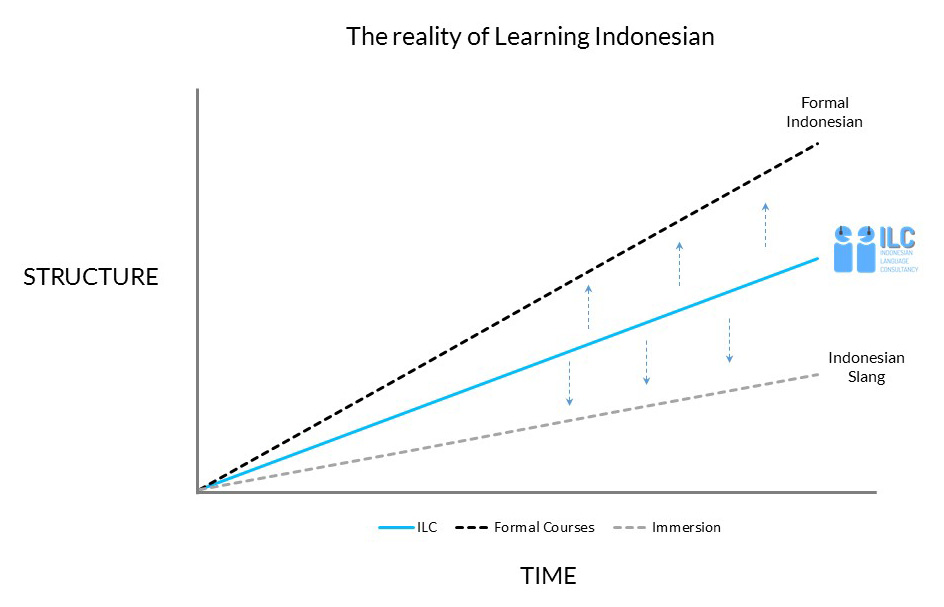What makes Indonesian Language Consultancy’s teaching method unique?
At Indonesian Language Consultancy, we know that students can better retain words and concepts that are relevant to them. That is why we strive to keep our topics, words and examples relevant for our students. Whether it is discussing basic or complex grammar, our lessons are always accompanied with examples that are relevant.
We also know that story is a powerful tool for learning. As students progress from Beginners 1, they will find more simple stories that are designed carefully by using grammatical concepts and words that have been previously discussed (and, of course, some new words to help expand students’ vocabulary).
On top of that, whenever possible, we always incorporate humour in our examples to keep our students engaged in the class. In the early level, these humours might be drawn from funny things that people can do but as students progress to higher level, they might find more and more peculiar ways of thinking that Indonesians might have. Such examples usually bring up discussions about differences in culture that are often enriching to the students and intriguing at the same time.
Lastly, we are not oblivious to the dilemma that often appears when students try to learn Indonesian. When learning Indonesian in a course, or even by self study, often students will fall into two extremes: learning the perfect and formal Indonesian or learning the complete slang. Some people believe that when students learn Indonesian, it ought to be perfect and formal. Students who have followed this extreme ended up being able to read and write in formal and structured Indonesian but unable to handle the flexibility that is portrayed in colloquial Indonesian. Some believe that complete slang is what Indonesian people use in real life and perfect and formal Indonesian should be ignored. Students who have followed this extreme ended up being able to speak and listen at some level but unable to fully comprehend the language when it is being used in more formal settings.
At Indonesian Language Consultancy, we strive to provide a more balanced approach to this dilemma. Our courses are not excessively formal nor excessively colloquial. We focus on the foundational aspects of Indonesian because we believe that a strong foundation will help students pursue both formal and colloquial Indonesian. This is achieved by going through essential grammar points that exist within both formal and colloquial Indonesian, practising with the key words and different words with similar meaning and purpose, as well as by exploring different ways of saying the same thing. Our approach help students see the order that exists in formal Indonesian as well as the flexibility that is prevalent in colloquial Indonesian. Each of our lessons are designed to expand and stretch students’ minds to get them ready to explore Indonesian further (whether it is at a formally, colloquially or both) and to build the capacity for future self study.

- We keep our lessons interactive, engaging and intriguing.
- We update our materials regularly.
- We incorporate cultural aspects into our examples whenever possible.
- We encourage students to explore more and practise with any other Indonesian that they may know.
- We keep our lessons focused on language and culture, because we know that our students’ time is valuable.
- We do not deliver our Beginners Level Courses in full Indonesian. Our trainer increases his use of Indonesian in the class progressively to ensure every students get similar understanding and do not feel left out if they cannot keep up. As students get into higher level courses, they can expect to hear more Indonesian from our trainer and at the Intermediate Level, 80% of the course is delivered in Indonesian.
- We do not hate mistakes. In fact, we encourage students to try and will put our best to help students improve.
- We do not hate questions. For us, questions can get everyone interested and it also help us understand aspects of the language that students usually struggle with.







